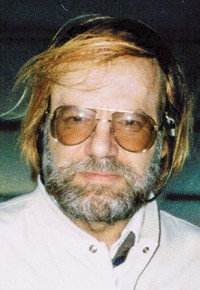Advertisement
Grab your lab coat. Let's get started
Welcome!
Welcome!
Create an account below to get 6 C&EN articles per month, receive newsletters and more - all free.
It seems this is your first time logging in online. Please enter the following information to continue.
As an ACS member you automatically get access to this site. All we need is few more details to create your reading experience.
Not you? Sign in with a different account.
Not you? Sign in with a different account.
ERROR 1
ERROR 1
ERROR 2
ERROR 2
ERROR 2
ERROR 2
ERROR 2
Password and Confirm password must match.
If you have an ACS member number, please enter it here so we can link this account to your membership. (optional)
ERROR 2
ACS values your privacy. By submitting your information, you are gaining access to C&EN and subscribing to our weekly newsletter. We use the information you provide to make your reading experience better, and we will never sell your data to third party members.
Environment
John O'Mara Bockris
by Stephen K. Ritter
October 28, 2013
| A version of this story appeared in
Volume 91, Issue 43
John O’Mara Bockris, 90, an electrochemist, died in Gainesville, Fla., on July 7 after a long battle with cancer.
Born in Johannesburg, South Africa, Bockris earned a B.S. in chemistry in 1943 at the University of London and a Ph.D. in chemistry in 1945 at Imperial College London. During his career, he held appointments at Imperial College; the University of Pennsylvania; Flinders University in Australia; and Texas A&M University, from which he retired in 1997.
Bockris supervised research projects of more than 70 Ph.D. students and authored more than 700 publications. His written works include the popular textbook “Modern Electrochemistry,” first published in 1970, and he founded the book series “Modern Aspects of Electrochemistry.” Bockris also was among the founders of two scientific societies in the area of electrochemistry: the International Society of Electrochemistry in 1949 and the International Association for Hydrogen Energy in 1974.
Bockris was one of the first investigators to recognize the importance of the electronic structure of metal electrodes in defining the mechanisms of electrochemical reactions, an area that became known as physical electrochemistry. He also was an early proponent in the 1970s of the concept of the hydrogen economy, in which hydrogen can be used as the principal means for delivering energy. In the 1990s, his research on cold fusion, a field now known as low-energy nuclear reactions, provoked controversy, including charges of research misconduct for which he was exonerated.
Bockris received the Faraday Medal from the Electrochemistry Group of the Royal Society of Chemistry in 1981. He also received the tongue-in-cheek Ig Nobel Prize in physics in 1997 “for his wide-ranging achievements in cold fusion, in the transmutation of base elements into gold, and in the electrochemical incineration of domestic rubbish.” Bockris was a member of ACS from 1980 until 1998.
Obituary notices of no more than 300 words may be sent to Susan J. Ainsworth at s_ainsworth@acs.org and should include an educational and professional history.



Join the conversation
Contact the reporter
Submit a Letter to the Editor for publication
Engage with us on Twitter